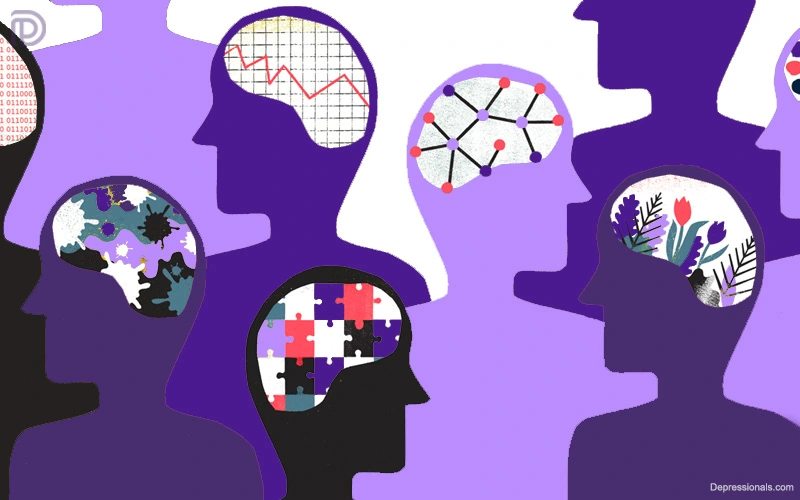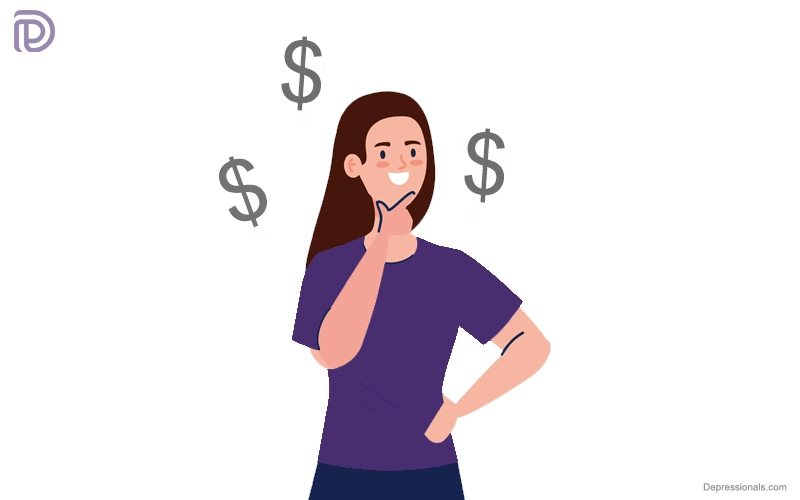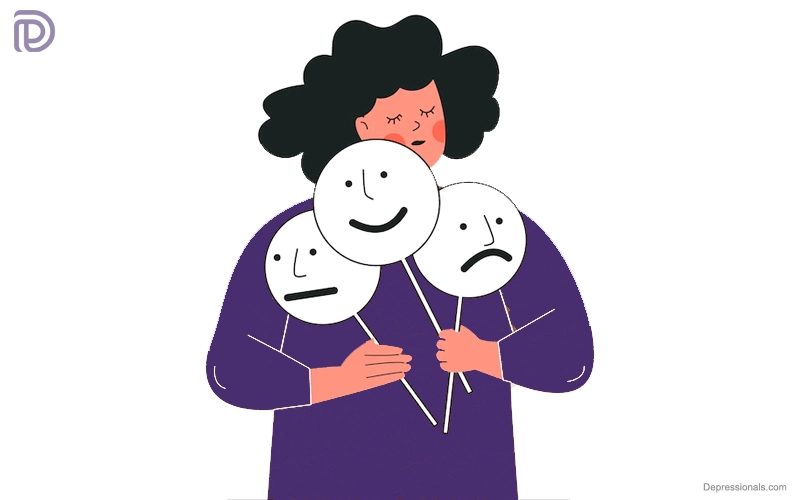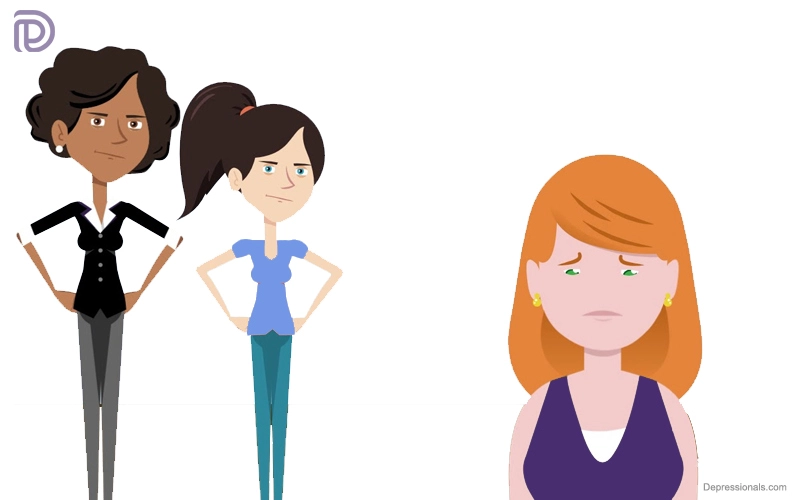What is Personality Disorder?
Personality disorder comprise a wide variety of mental health conditions characterized by unrelenting patterns of thinking, feeling, and behaving. It’s common for our inner experiences and behaviors to differ from those expected of us by our culture.
It typically prevents people from getting along with others and from managing everyday problems in a manner that is expected by society. Most of them believe that their behavior and thought processes are normal.
Yet, they tend to approach the world in a very different way than other people. This leads them to have difficulty engaging in educational, social and family activities. Moreover, they point the finger at others for their problems.
Behaviors and attitudes such as these are often problematic in interpersonal relationships, social situations, and the workplace or school. These situations may also contribute to depression and anxiety in people with personality disorders.
It is not known what causes personality disorders. Genetics and environmental factors are believed to play a role in their onset, most notably childhood trauma.
Teenagers and young adults are especially susceptible to personality disorders. The symptoms of personality disorders vary according to the specific type. Medication and talk therapy are typically part of the treatment.
You should know about Depersonalization Disorder
Who do personality disorders affect?
An individual can suffer from a disorder at any time. The effects of personality disorders vary from person to person.
When your personality further develops and matures during your teen years, personality disorders are more common. It is therefore far more common to diagnose personality disorders in people over the age of 18. About 80% of people with antisocial disorder start showing symptoms by the age of 11 – the exception is those with antisocial disorder.
People who are assigned male at birth are more likely to suffer from antisocial personality disorders. There is a greater possibility for people assigned female at birth to develop borderline, histrionic, or dependent personality disorders.
What are the different types of Personality Disorders?
There are many types of personality disorders. Based on similar characteristics, most common personality disorders are divided into three clusters. There may be signs and symptoms of multiple personality disorders in some individuals.

Cluster A: Suspicious
Paranoid Personality Disorder
A paranoid personality disorder is characterized by extremely distrustful behavior and suspicion of others. Grudges are also a common trait among them.
Schizoid Personality Disorder
Schizophrenia is characterized by a lack of interest in forming personal relationships or the pursuit of social interaction. Social cues are usually not picked up by people with schizoid personality disorder, so they can appear emotionally cold.
Schizotypal Personality Disorder
Schizotypal personality disorder often involves the belief that your thoughts are able to affect others. It is common for them to misinterpret behaviors. Due to this, they react inappropriately emotionally. Relationships may be avoided consistently by them.
Read: Thought Disorder
Cluster B: Emotional and impulsive
Antisocial Personality Disorder
An antisocial personality disorder is characterized by manipulative behavior and harsh treatment of others without remorse. Liars, thieves, and drug abusers may also inflict harm on others.
Borderline Personality Disorder
No matter how supportive their families or their communities are, people with such borderline personality disorder often feel abandoned. Stress can be a problem for them. Paranoia may be a symptom of their condition. In addition, they tend to engage in risky and self-destructive behaviors, such as binge, gambling and drinking.
Histrionic Personality Disorder
The histrionic personality disorder is marked by overly dramatic behavior or promiscuity. Their sensitivity to criticism and disapproval makes them easily influenced by others.
Narcissistic Personality Disorder
An individual who has narcissistic personality disorder believes himself or herself to be more important than others. Many of them tend to overestimate their achievements and may boast about how attractive or successful they are. The need for admiration in these people is strong, but they lack empathy.
Related: How to Deal With a Narcissist
Cluster C: Anxious
Avoidant Personality Disorder
Those who suffer from avoidant personality disorder often feel inadequacy, inferiority or unattractiveness. Usually, they remain focused on others’ criticisms and avoid unfamiliar tasks and acquaintances.
Dependent Personality Disorder
People who suffer from dependent personality disorder traits of independent personality are characterized by a dependence on another person to meet their emotional and physical needs. It is rare for them to be alone. Whenever they make a decision, they need reassurance. Occasionally, their tolerance for abuse may also extend to physical and verbal abuse.
Obsessive-Compulsive Personality Disorder
OCD patients have an overwhelming need to keep order in their lives. They strictly follow laws and regulations. Perfectionism causes extreme discomfort in them. It is not uncommon for people with obsessive-compulsive personality disorder to ignore their personal relationships to focus on the perfect project.
Also, check: Side Effects of Overthinking
Personality disorder’s symptoms
It typically begins in childhood and continues through adulthood and can cause considerable distress. Their behavior can sometimes lead to substantial conflict with other people, affecting relationships, social circumstances, and life goals.
It is common for persons afflicted with personality disorders not to realize that they have a problem, and they may be frustrating (and confusing) to others.
There are two major types of symptoms in personality disorders: self-identity and interpersonal functioning.
Some of the problems facing self-identity are:
- Having an unstable sense of self
- Values, goals, and appearances that are inconsistent
Problems with interpersonal relationships include:
- Lack of empathy (insensitivity)
- Trouble recognizing boundaries between oneself and others
- Consistently inconsistent, detached, emotionally overindulgent, abusive, or irresponsible relating
Check: Types of Overthinking
What is the diagnosis of personality disorders?
Diagnostic and Statistical Manual of Mental Disorders, Fifth Edition (DSM-5), is a manual that mental health professionals and doctors use to diagnose mental illness. It is important to meet specific criteria for a diagnosis of every disorder.
These criteria will be used by your primary care provider or mental health professional to determine what type of disorder you have. Diagnoses can only be made based on consistent behaviors and feelings across a variety of life situations. At least two of the following must undergo significant distress and impairment:
- Perceive yourself or others in a certain way
- How you behave when you deal with others
- Emotional appropriateness
- How well you manage your impulses
Blood tests may be performed by your primary care provider or mental health provider to determine whether your symptoms are related to a medical issue. Additionally, a drug and alcohol test may be ordered.
Recommended: How to help someone with Depression
What is the treatment for a personality disorder?
Treatment for personality disorders varies according to the type and severity of the condition. Psychotherapy and medications may be used.
Psychotherapy
Personality disorders can be managed with the help of psychotherapy or talk therapy. Psychotherapy allows you to express your feelings and thoughts as well as your condition. Your symptoms and behaviors that interfere with your daily life, such as stress, can be managed by understanding how these symptoms are caused.
Psychotherapy includes many types. Participants in dialectical behavior therapy gain skills for dealing with stress and improving relationships through group and individual sessions. Cognitive-behavioral therapy increases the ability of people to cope with daily challenges by helping them change negative thinking patterns.
Read: Immature Personality Disorder
Medication
Personality disorders are not treated with drugs. It’s worth mentioning, however, that certain medications might be effective in treating various personality disorders symptoms:
- Depression, anger, or impulsivity can be treated with antidepressants
- Stabilizers reduce irritability, aggression and mood swings
- The drug neuroleptics, also known as antipsychotics, can be useful for people who sometimes lose their sense of reality
- Anxiety medication that helps relieve anxiety, insomnia and agitation
Recommended: Multiple Strategies To Control Overthinking
Are personality disorders preventable?
Personality disorders cannot be prevented at this time, but many of their associated problems can be lessened through treatment. It is most beneficial for the individual to seek help as soon as symptoms appear in order to minimize the disruption to their life, family, and friends.
What are the chances of recovering from a personality disorder?
Treatment of personality disorders is first and foremost about acknowledging the problem. When someone suggests that they may have a disorder, people with these types of disorders frequently become very upset, because they believe their traits are normal.
When someone is diagnosed with this disorder and seeks treatment, they are likely to see improvement in their symptoms. Friends and family are also advised to participate in a patient’s therapy sessions.
A person having this disorder should also avoid doing drugs and drinking alcohol. Drugs that affect human emotions may interfere with treatment.
How to help someone with personality disorders
People with personality disorders shouldn’t be afraid to seek professional help, especially if they are near you. You should avoid arguing with someone who gets angry or defensive. Do not attempt to convince them otherwise. Instead, speak out about your feelings and concerns about their actions.
You should call 911 if you are concerned that the other person is planning to harm themselves or others. The National Suicide Prevention Lifeline is a good resource to tell a friend or loved one about as well. Anybody who feels down or anxious can contact this free, 24-hour helpline. The voice of a friend or loved one can be helpful during a difficult time or crisis.
Read: Signs of Self-Obsessed Person












Very useful post. This is my first time i visit here. I found so many interesting stuff in your blog especially its discussion. Really its great article. Keep it up.
This is such a great resource that you are providing and you give it away for free. I love seeing blog that understand the value of providing a quality resource for free!
Just wanna input that you have a very nice website , I like the style and design it really stands out.
Thanks for all your efforts that you have put in this. very interesting information.
I’ve recently started a web site, the information you provide on this web site has helped me greatly. Thank you for all of your time work.
The information you have provided is very useful to me.